Artists from Strange Beast, Blinkink and the rest of the illustration and animation world do their bit to encourage people to keep donating.
from It's Nice That https://ift.tt/2yNcdmR
Artists from Strange Beast, Blinkink and the rest of the illustration and animation world do their bit to encourage people to keep donating.
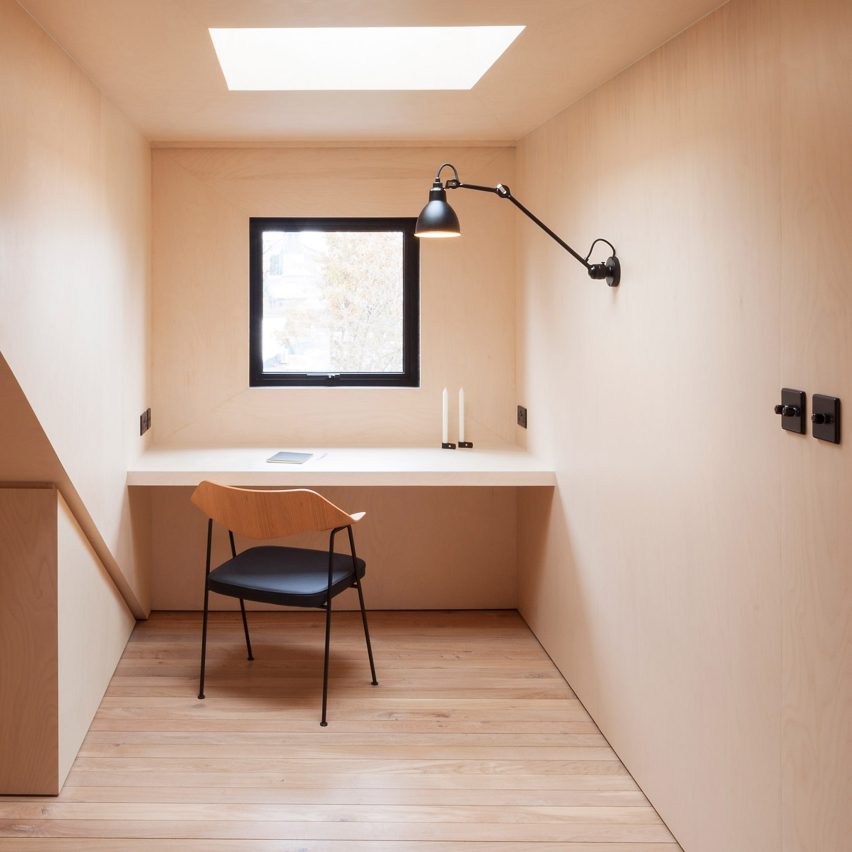
The rise of coronavirus means a growing number of people are required to work remotely from their homes. Dezeen has selected eight inspiring home offices, including one that's lined entirely with plywood and another that's hidden inside an artichoke-shaped room.
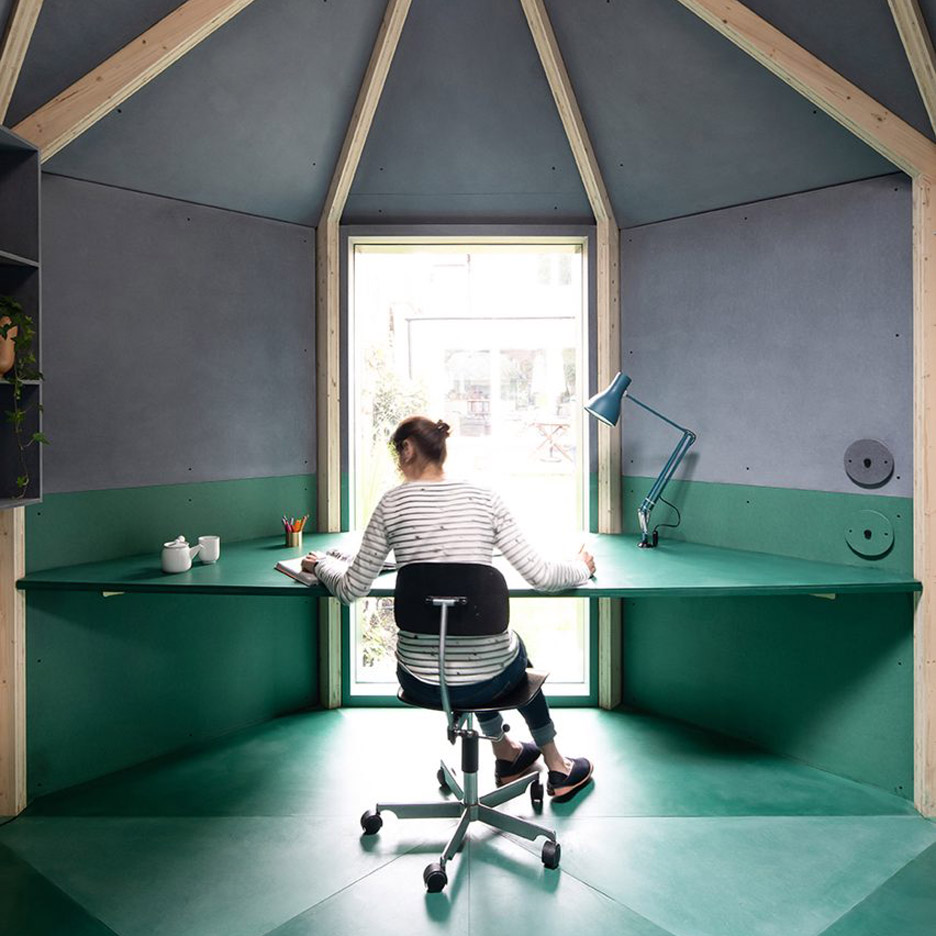
A Room in the Garden, UK, by Studio Ben Allen
An artichoke-shaped garden room in southwest London accommodates this quirky study.
The space is fronted by a desk and picture window, while at its rear is a chunky plinth where inhabitants can recline to read a book – it even includes a pull-out bed, perfect for mid-afternoon naps.
Find out more about A Room in the Garden ›
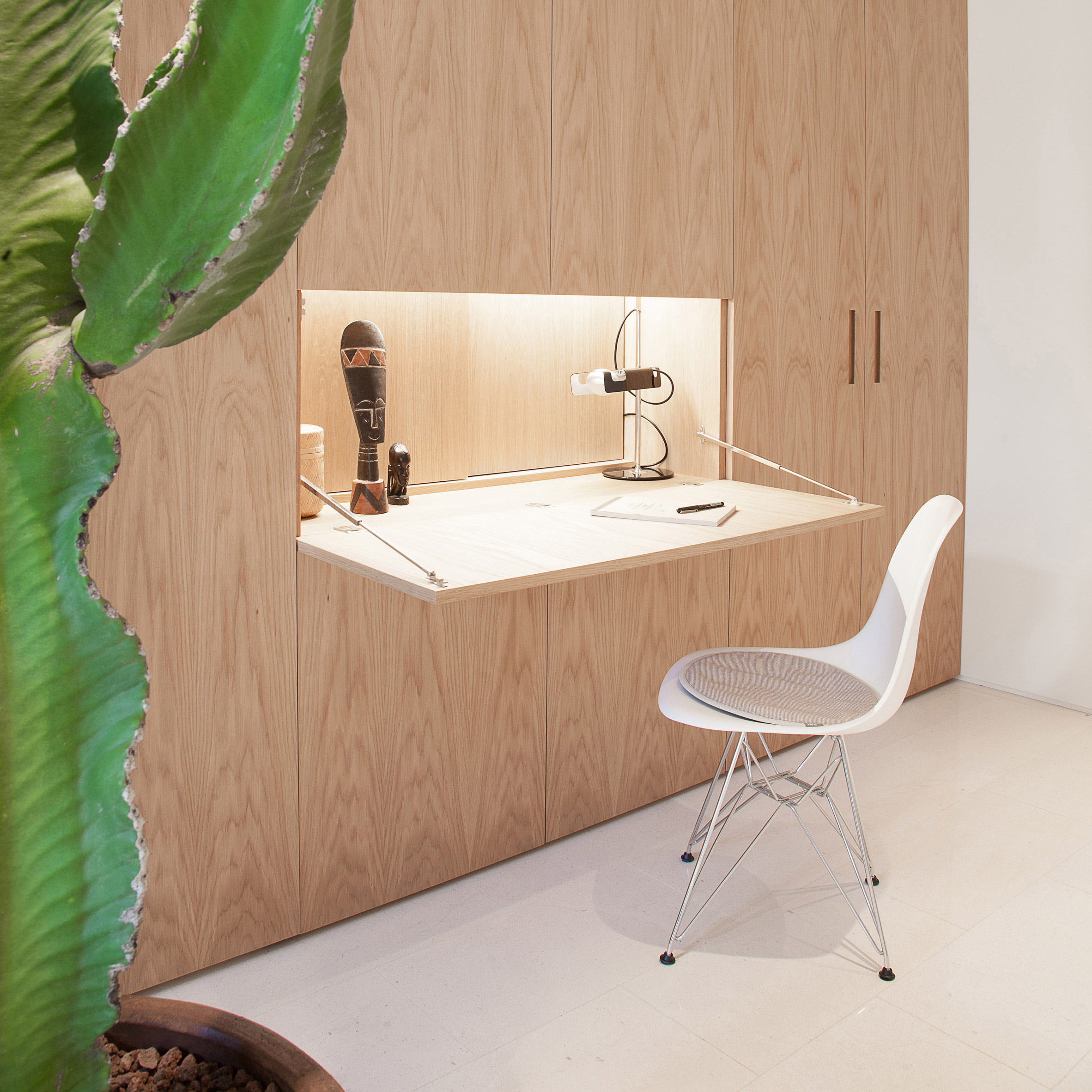
Argentona Apartment, Spain, by YLAB Arquitectos
The full-height oak wood cabinetry inside this Barcelona apartment conceals a fold-out desk where inhabitants can sit and work.
Inhabitants can alternatively opt to work on the light-filled terrace that's dotted with potted plants.
Find out more about Argentona Apartment ›
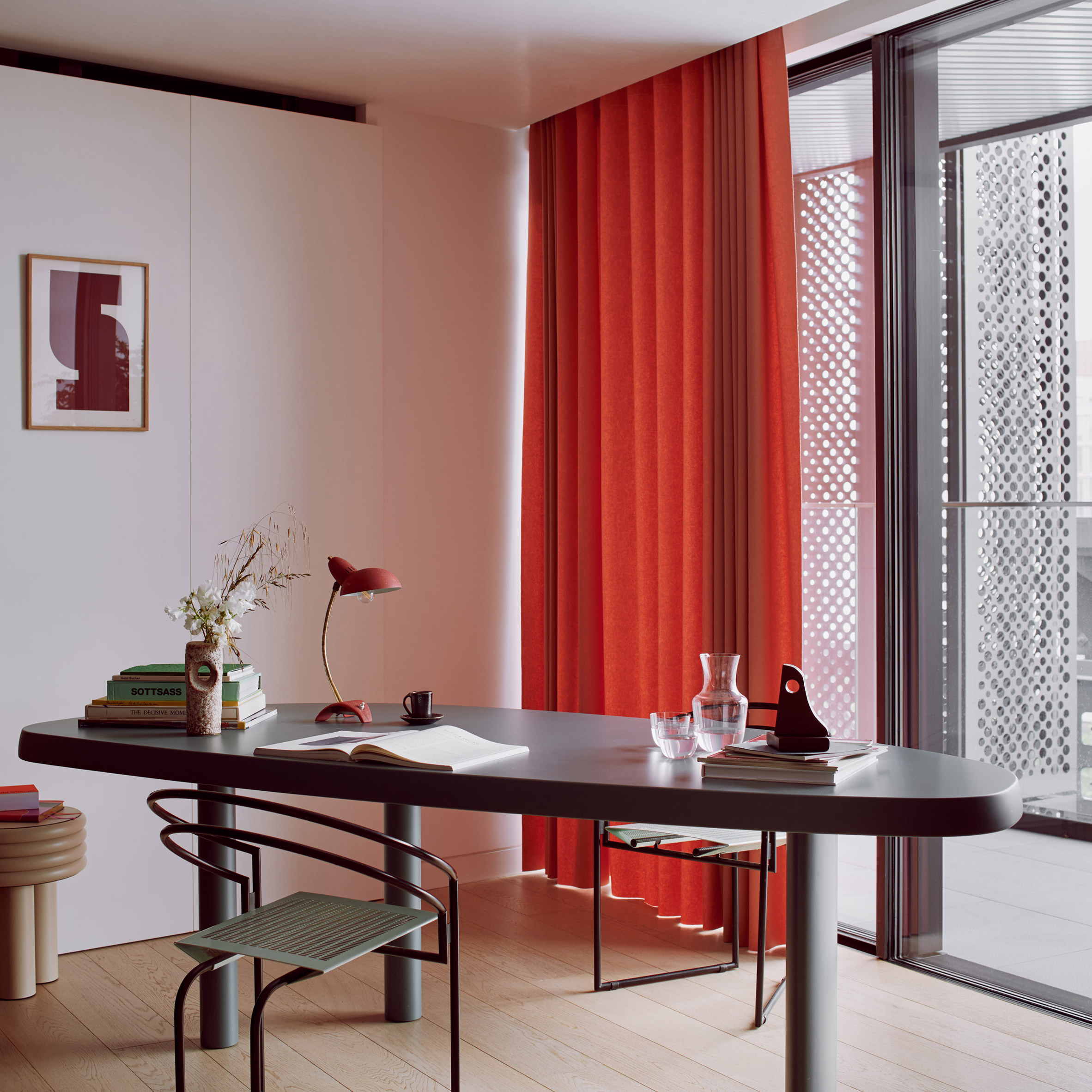
London apartment, UK, by Roksanda Ilincic
An ovular desk by revered French architect Charlotte Perriand is the focal point of the office in this Kings Cross apartment, which has almost exclusively been filled with furnishings from female creatives.
The piece is accompanied by geometric, black-frame chairs and pink curtains from Kvadrat that dip the room in a rose-tinted glow.
Find out more about this London apartment ›
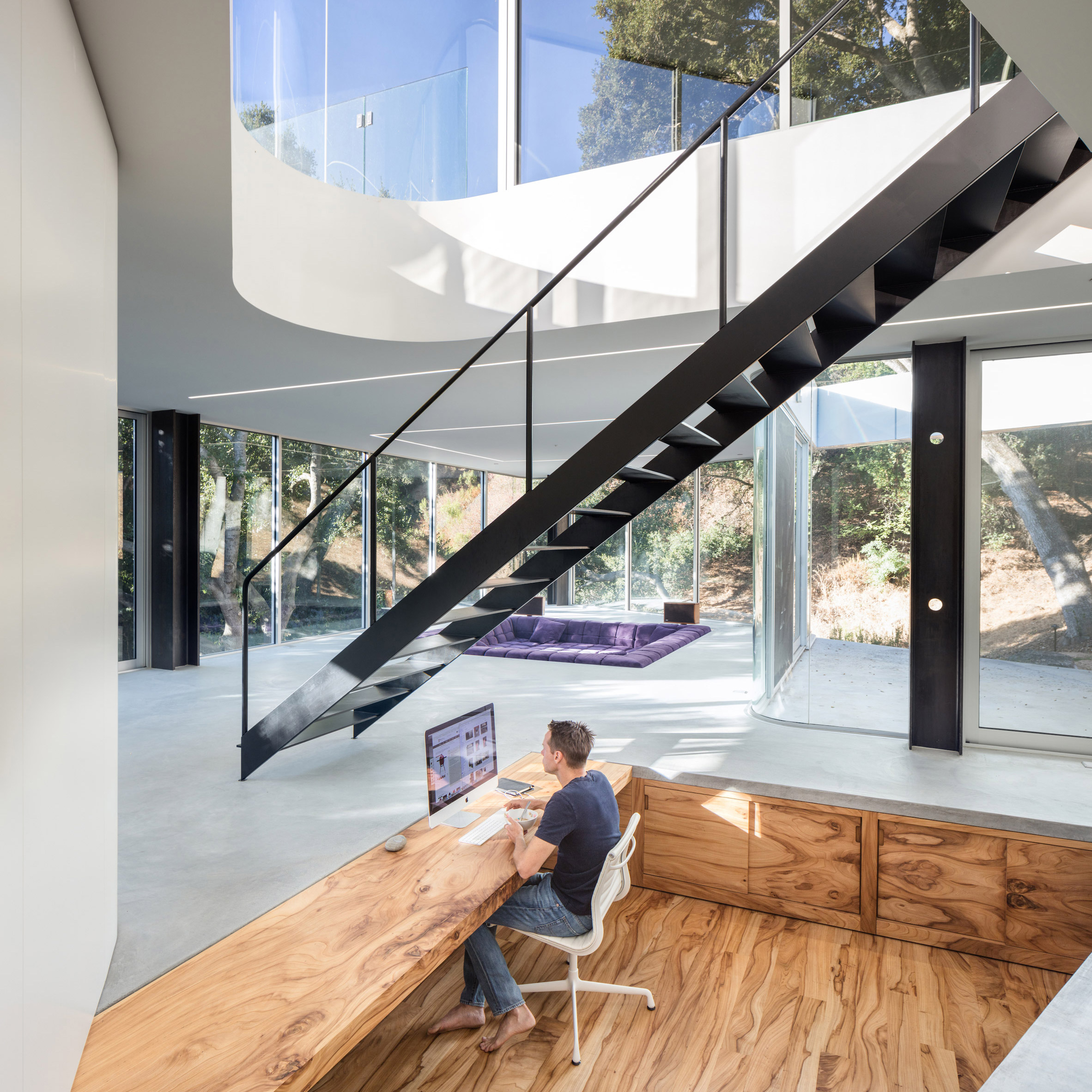
Pam and Paul's House, USA, by Craig Steely Architecture
The office in this Silicon Valley home takes the form of a timber-lined pit, which the architects have created directly beneath a steep flight of stairs.
Should inhabitants want a more relaxed working environment, there's also a 13-square-metre sunken sofa that's upholstered in deep-purple velvet.
Find out more about Pam and Paul's House ›
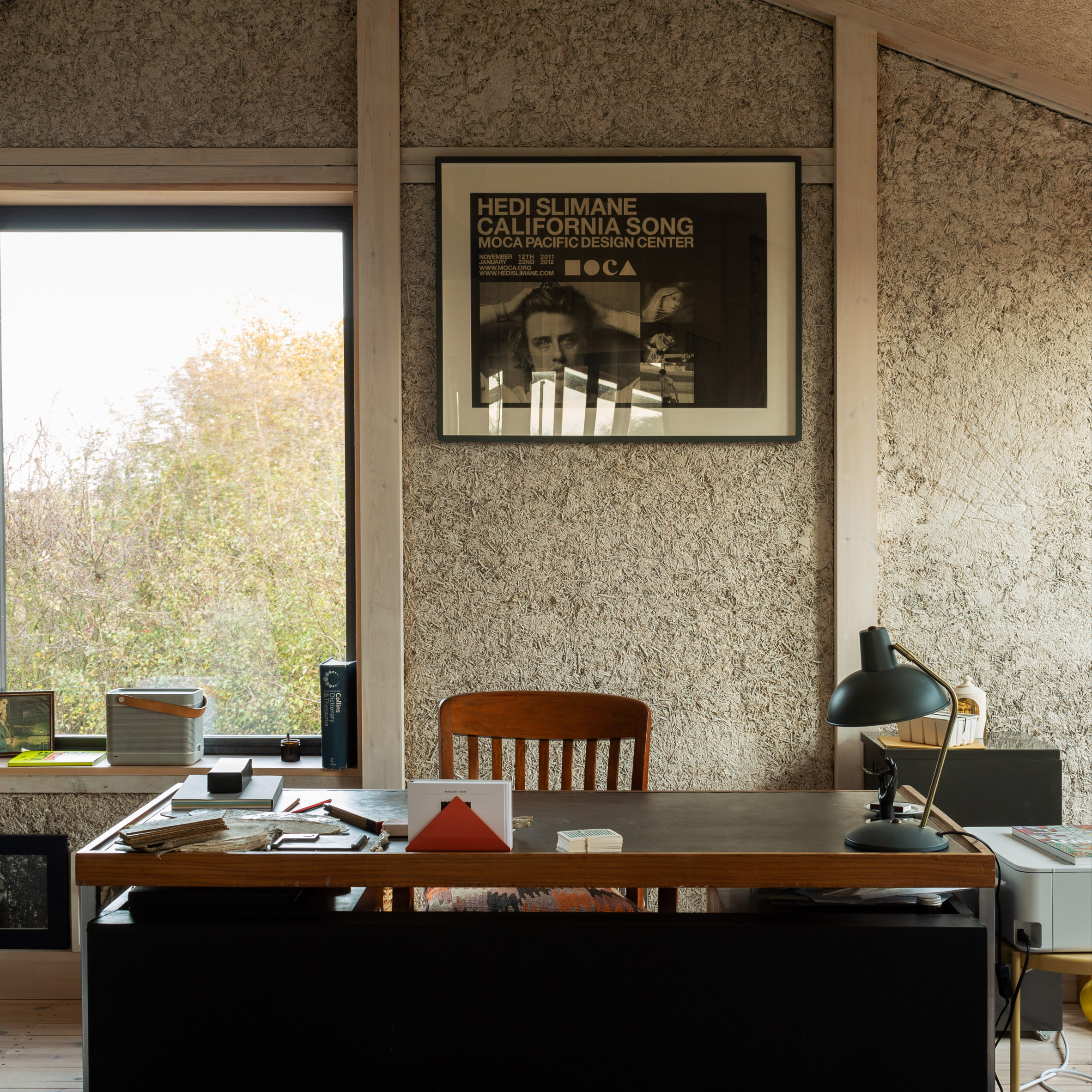
Flat House, UK, by Practice Architecture
Panels made from a mixture of lime and hemp form the textured walls of this home office, which is set inside a zero-carbon home in Cambridgeshire.
Other than a handful of vintage prints mounted on the wall, decor has been kept simple – the room is dressed with a plain black desk and wooden chair.
Find out more about Flat House ›
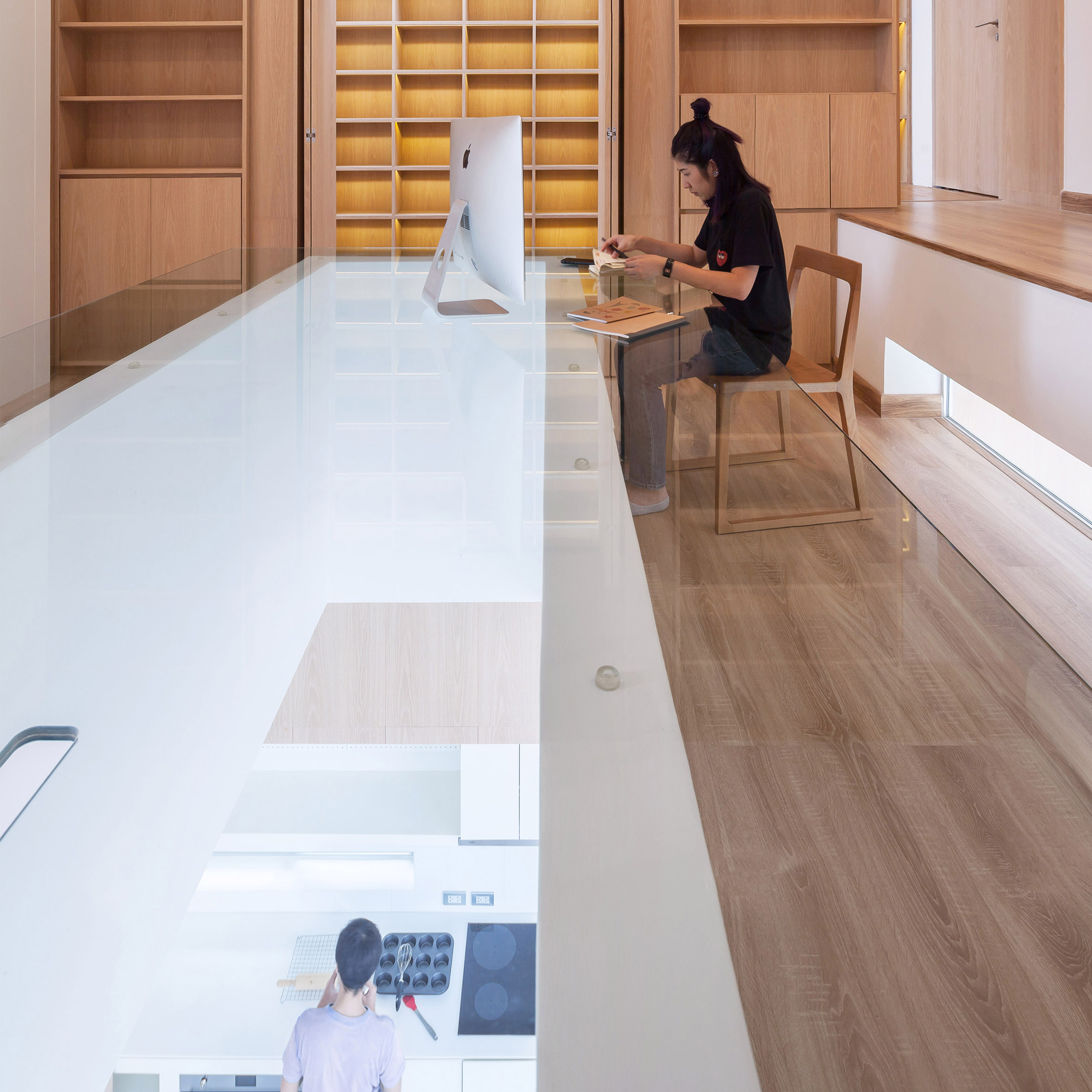
JB House, Thailand, by IDIN Architects
This home office in Bangkok was designed so that its owners, a young couple, could "privately keep in touch". At the centre of the room – largely used by the girlfriend, who's a writer – is a huge glass-topped desk.
It aligns with a void that looks through to the kitchen, allowing her to catch glimpses of the boyfriend, a baking enthusiast, preparing treats at the breakfast island.
Find out more about JB House ›
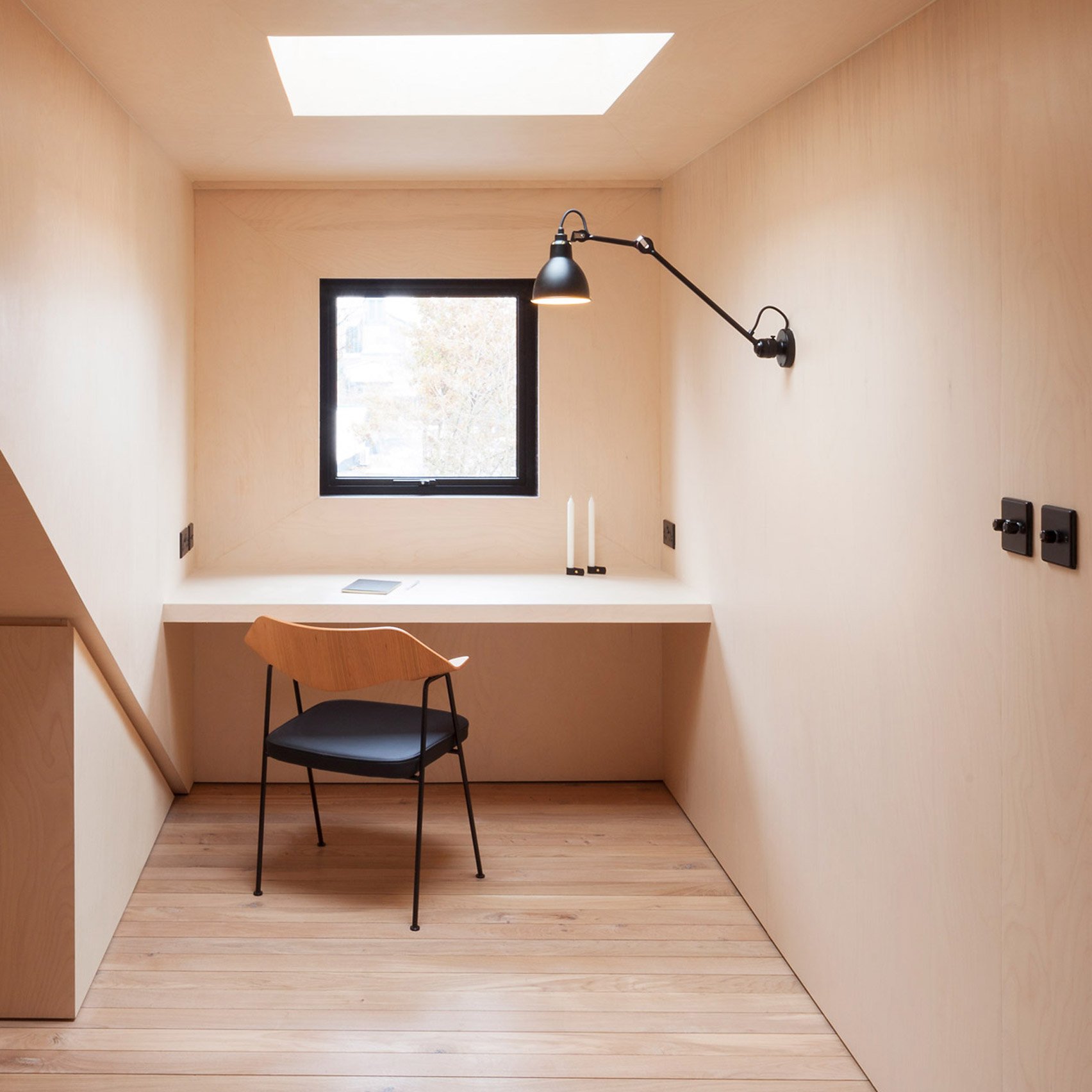
London flat, UK, by Widger Architecture
Widger Architecture extended the loft of a Walthamstow flat to create this serene study. Light-hued birch plywood covers the walls and ceiling, and has even been used to craft its built-in desk.
Black decor accents – like the reading lamp, window frame and chair – hint at the extension's dark exterior, which is clad in charred larch.
Find out more about this London apartment ›
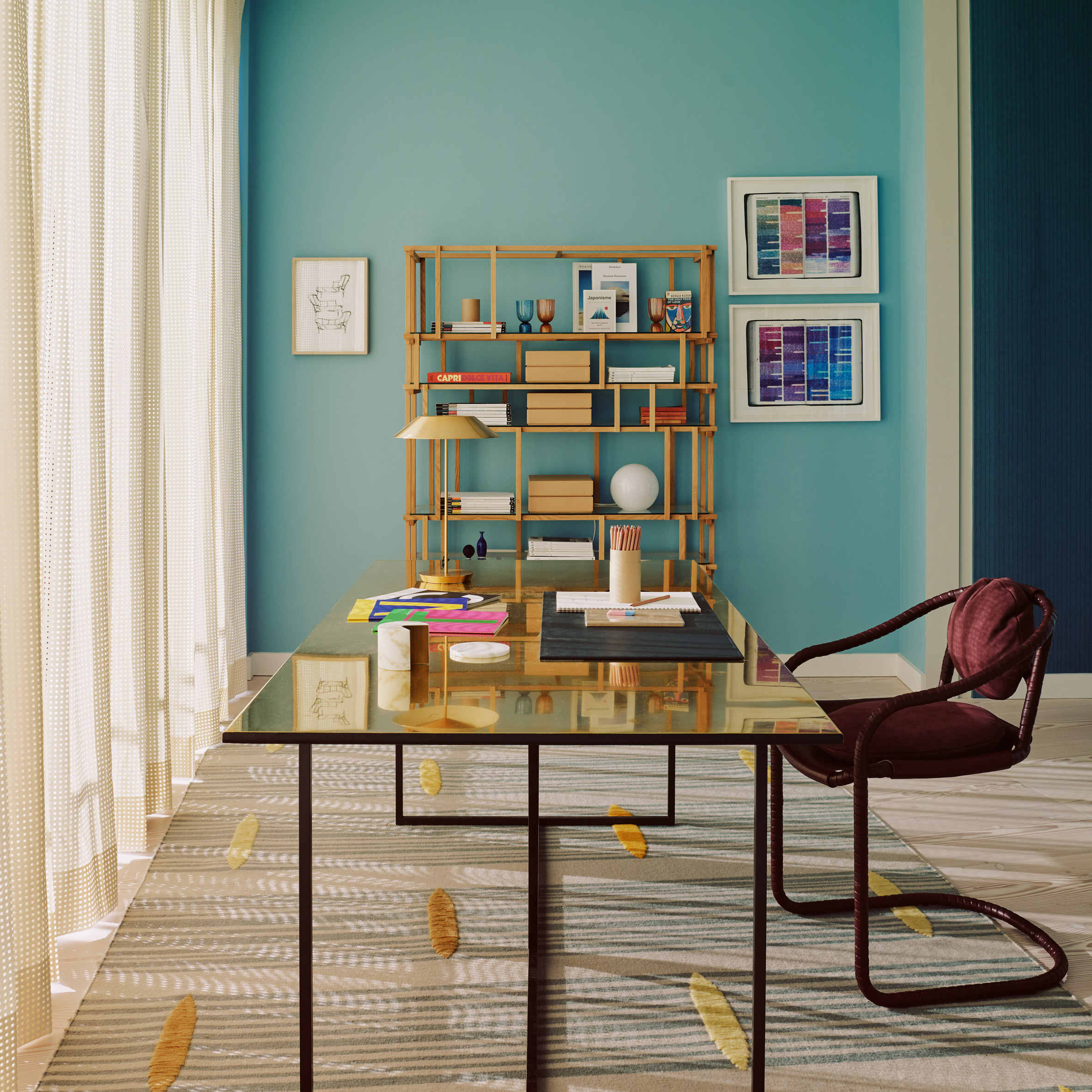
London apartment, UK, by Waldo Works
A west London penthouse plays host to this luxurious study, which boasts a brass-topped desk, merlot-red chair and turquoise walls adorned with literary artworks.
Laser-cut wool curtains have also been hung in the front of the windows, dappling the room with flecks of light throughout the day.
Find out more about this London apartment ›
The post Eight home offices with stylish set-ups for remote working appeared first on Dezeen.
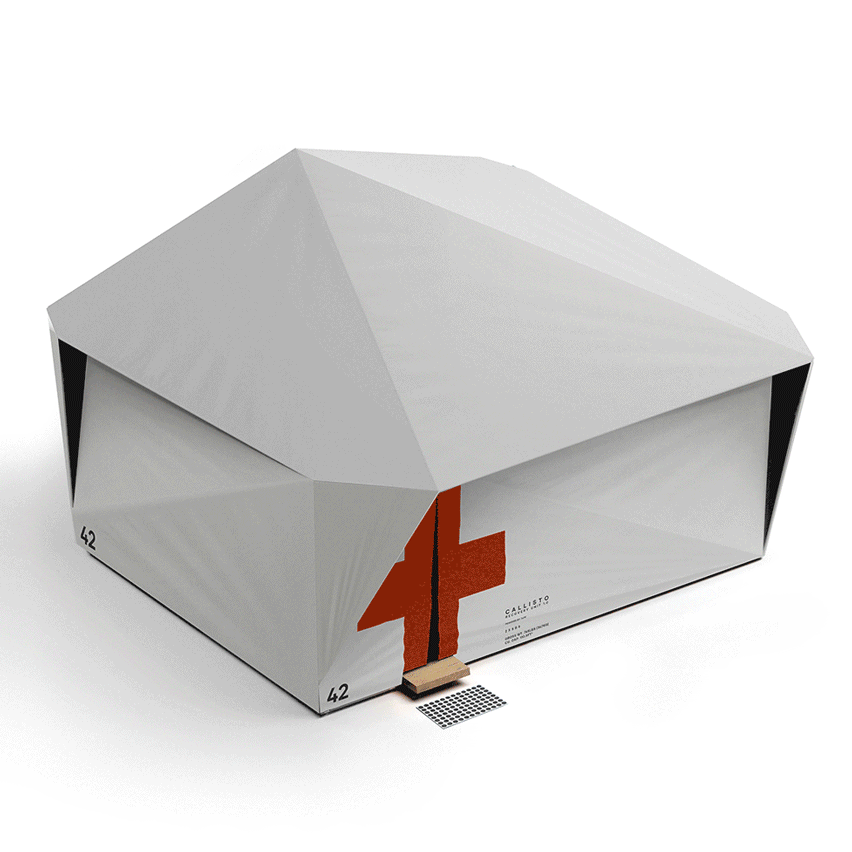
From designing face shields and flat-pack intensive care units to 3D-printing hands-free door levers and converting buildings to hospitals, architects and designers are tackling the coronavirus pandemic. Here are five ways they are helping.
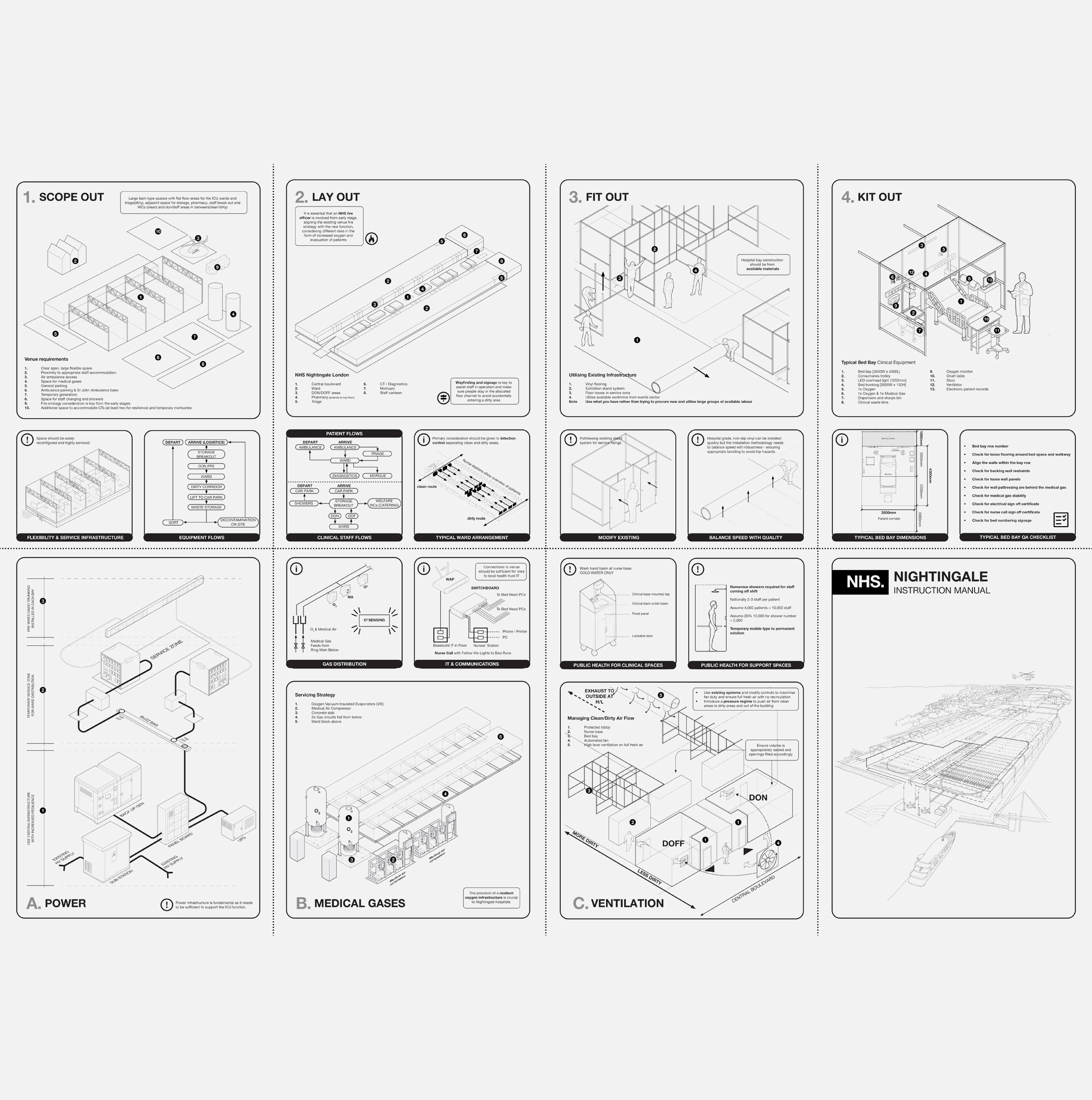
Converting buildings to hospitals
The unprecedented number of coronavirus cases is forcing countries around the world to rapidly increase their capacity to treat patients.
To do this, buildings across the world are being converted into intensive care units. In Tehran, Iran Mall, the world's largest shopping centre, is being transformed into a coronavirus hospital, while in New York the Cathedral of St. John the Divine is also set to be converted.
With large open spaces, conference centres are an obvious choice for conversion and architecture studio BDP has converted the ExCel Centre in London into a 4,000-bed hospital called NHS Nightingale.
Two giant wards have been created in the exhibition halls, which are divide from a central corridor by areas to put on and take off protective clothing. A staff canteen, diagnosis room and mortuary complete the hospital.
"When the scale of the shortfall in beds across London became clear, the ExCel centre was the obvious choice," BDP's James Hepburn told Dezeen.
"It has huge flat floor hall spaces with flexible MEP infrastructure that can be easily adapted to meet the needs of the temporary hospital."

Designing temporary intensive care units
Architects have also recognised the need to create temporary intensive care units that can be rapidly deployed, following China's rapid construction of a temporary hospital to treat patients at the start of the pandemic.
In response to the outbreak in the USA, flat-pack startup Jupe has created a range of medical care facilities that are designed to be quickly installed at hospitals to increase bed capacity, or that could be used as stand-alone field hospitals.
"Hospitals can't tackle it all rapidly enough, even once the federal government's aid package kicks in," explained Jupe chief medical advisor Esther Choo.
In Italy, architects Carlo Ratti and Italo Rota designed an intensive-care pod within a shipping container. The first prototype is currently under construction at a hospital in Milan.
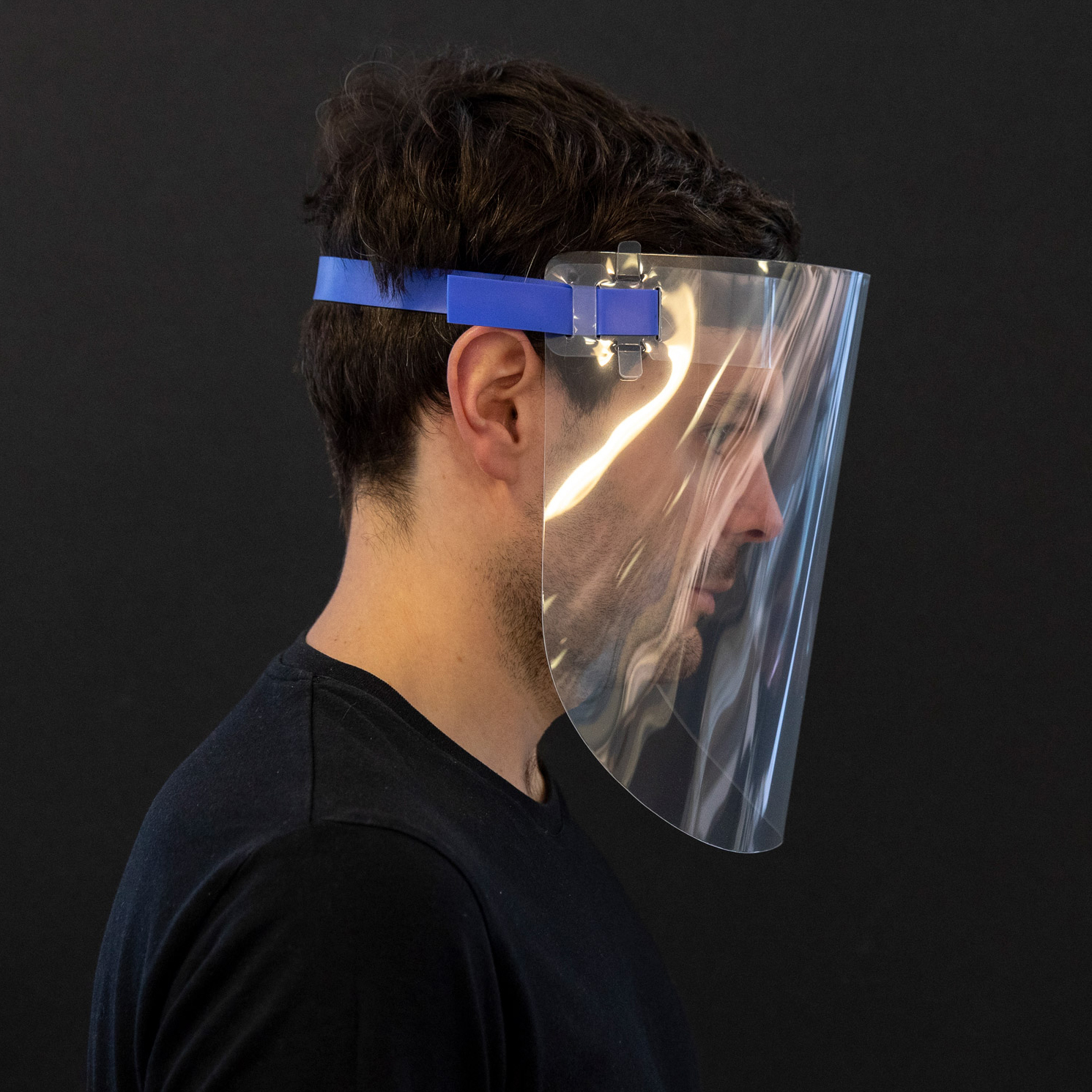
In some countries, the pandemic has led to a shortage of personal protective equipment (PPE) to protect health workers. In response, architects and designers have begun designing and manufacturing it themselves.
In the USA, studios including BIG, KPF and Handel Architects have joined an open-source project to print face shields, while in Spain 3D-printing brand Nagami Design has switched its machines from making furniture to shields.
British architecture studio Foster + Partners decided to design an alternative face shield that can be laser cut. The open-source device can be disassembled and sanitised for reuse.
Researchers at the Massachusetts Institute of Technology (MIT), the University of Cambridge and the University of Queensland, and graduates from Rhode Island School of Design have all also designed face shields.
MIT has developed a disposable face shield that is made from a single piece of plastic, which can be mass-produced and shipped flat. Pieces of plastic and be folded into a three-dimensional structure when needed.
The RISD graduates created a simple shield that combines a curved piece of plastic with a headstrap, while the University of Cambridge and the University of Queensland's design can be created with no specialist materials or tools.
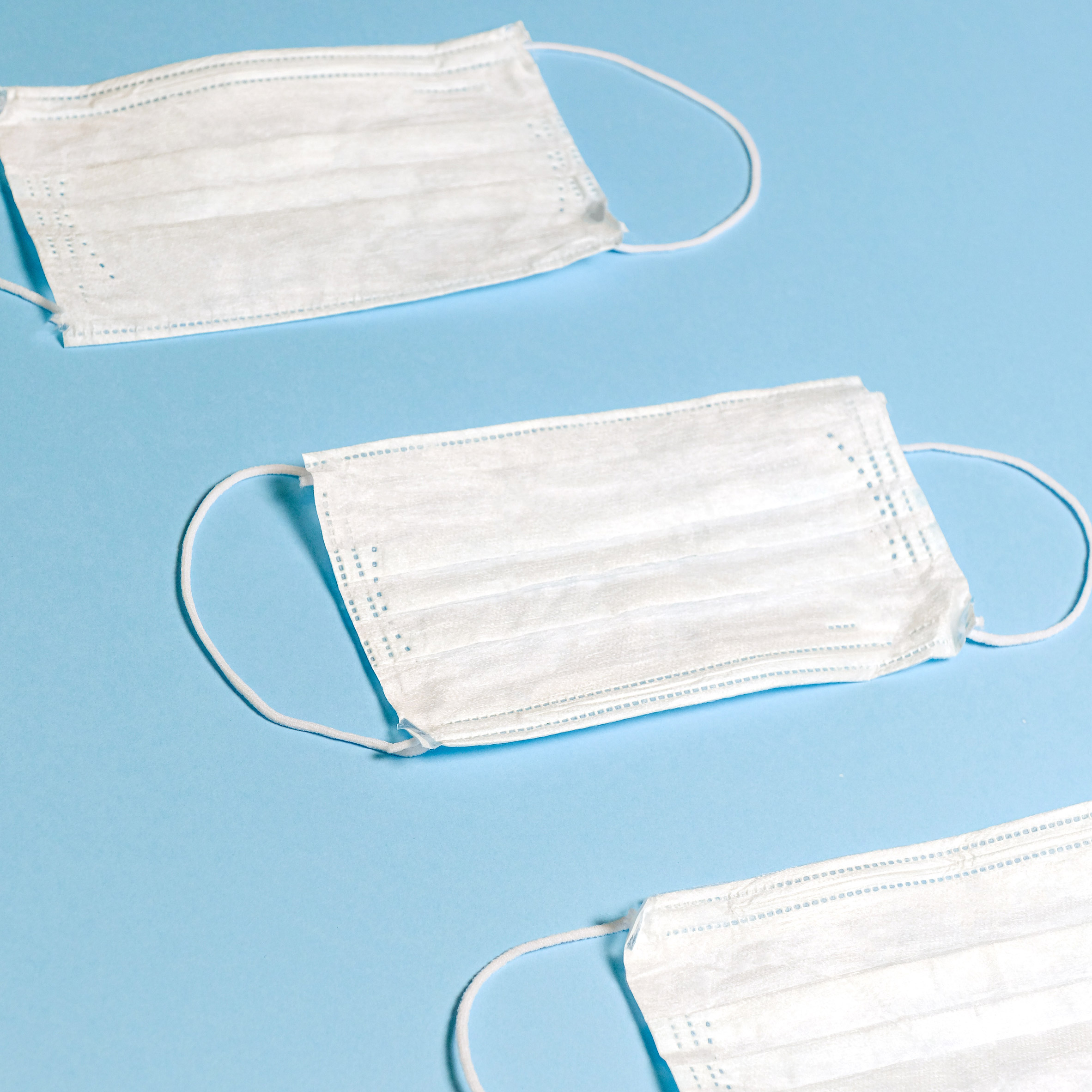
Making face masks
Face masks are another item of PPE that have seen a massive increase in demand during the pandemic. In response to shortages, numerous designs and fashion brands have converted their factories to mask production.
Prada, COS and Louis Vuitton are among the leading brands that have retooled to manufacture surgical face masks, while Yves Saint Laurent and Balenciaga have begun production of cotton face masks.
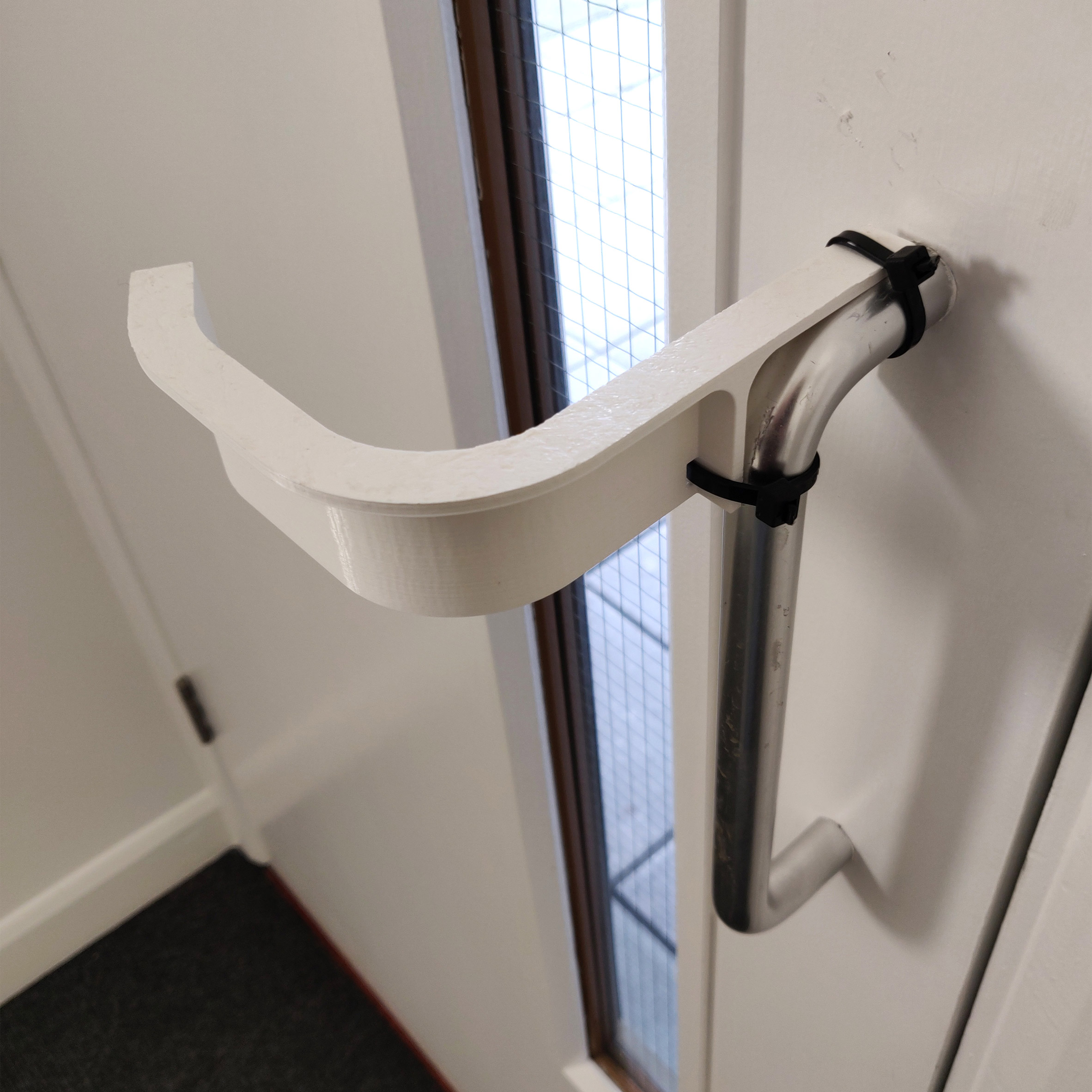
Hacking equipment
Architects and designers have been using their 3D-printers to quickly create items that alter equipment to solve problems raised by the pandemic.
To make wearing face masks less painful for medical staff treating patients, Chinese 3D-printer manufacturer Creality is printing a device that holds the strings away from the wearer's ears.
Architectural designers Ivo Tedbury and Freddie Hong have created a 3D-printed door-handle extension that users can loop their arm through so they can open doors without using their hands.
In Italy, additive manufacturing start-up Isinnova reverse engineered and 3D-printed a crucial valve for a oxygen mask, which is used as part of a ventilator machine, following a shortage.
"The valve has very thin holes and tubes, smaller than 0.8 millimetres – it's not easy to print the pieces," said Isinnova CEO Cristian Fracass. "Plus you have to respect not [contaminating] the product – really it should be produced in a clinical way."
The post Five ways architects and designers are helping the fight against coronavirus appeared first on Dezeen.
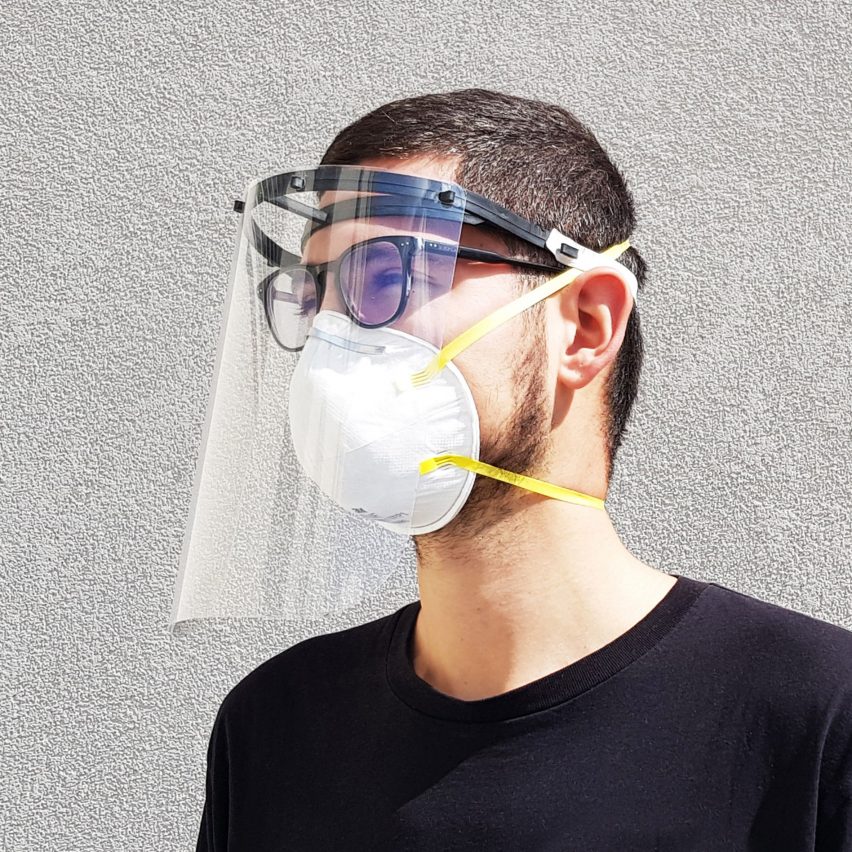
Daily coronavirus briefing: today's architecture and design coronavirus briefing includes magazine covers and movie posters that reflect the pandemic, as well as face shields by Nike, Adidas and Apple.
10 magazine covers that offer creative takes on the coronavirus crisis
As the coronavirus pandemic continues its spread across the globe, art directors and artists are using magazine covers as a visual commentary on the crisis (via Dezeen).
RIBA furloughs third of staff
The Royal Institute of British Architects has confirmed that it will be using the UK government's Coronavirus Job Retention Scheme to furlough 30 per cent of its 300-strong workforce (via Architects' Journal).
Nike designs face shields and lenses for air-purifying respirators
Sports brand Nike has used materials from its footwear and clothing to create face shields and lenses for air-purifying respirators, which are used to safeguard medical workers in contaminated areas (via Dezeen).
Movie posters updated to reflect social distancing
The artwork for movies including ET, Titanic, Jaws and Trainspotting have been updated, with characters moved further apart to reflect current social-distancing recommendations in place in many countries (via Little White Lines).
Recycled plastic turned into face shields and hands-free door handles to fight coronavirus
Recycling initiative Precious Plastic's open-source machines are being used to recycle plastic and turn it into face shields, respirator masks and hands-free door handles to fight coronavirus (via Dezeen).
Apple reveals face shield design
Apple has unveiled its design for a face shield to protect health workers fighting coronavirus, which it is producing in the millions (via Dezeen).
Zara social distances logo
Spanish fashion retailer Zara has separately the letters in its logo, which were pushed up closely together as part of a controversial rebrand by Baron & Baron last year, to promote social distancing. The move follows similar resigns by brands including Volkswagen, Audi and McDonalds (via Zara Twitter).
Parsons School of Design documents objects of our isolation
The Observational Practices Lab at New York's Parsons School of Design is inviting people to share images taken in isolation to create The Atlas of Everyday Objects (via It's Nice That).
Adidas and Carbon 3D-printing face shields
Sportswear brand Adidas and 3D printing company Carbon, which usually collaborate to create 3D-printed footwear, have started manufacturing 50,000 face shields a week (via Carbon).
Simple origami face shield can be folded from single sheet of plastic
Researchers at the University of Cambridge and the University of Queensland have created the HappyShield, an origami face shield that is made by folding a sheet of clear plastic (via Dezeen).
Keep up with developments by following Dezeen's coverage of the coronavirus outbreak. For news of impacted events, check Dezeen Events Guide's dedicated coronavirus page.
The post Daily coronavirus architecture and design briefing: 9 April appeared first on Dezeen.
